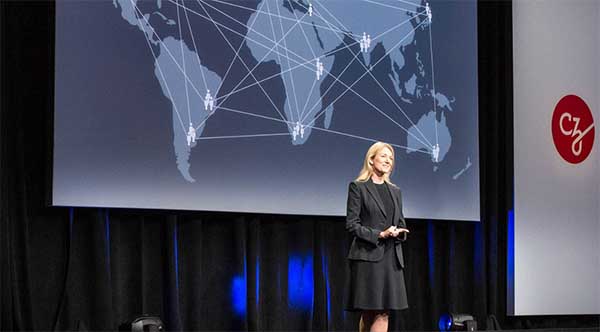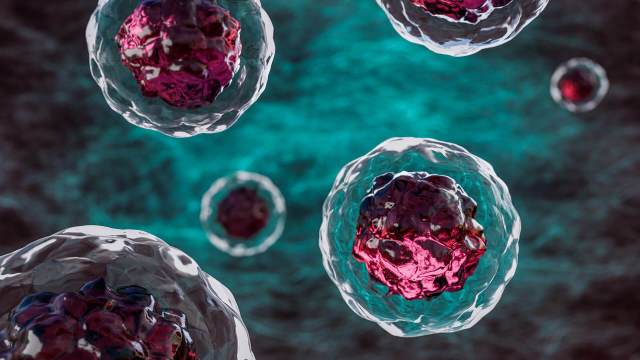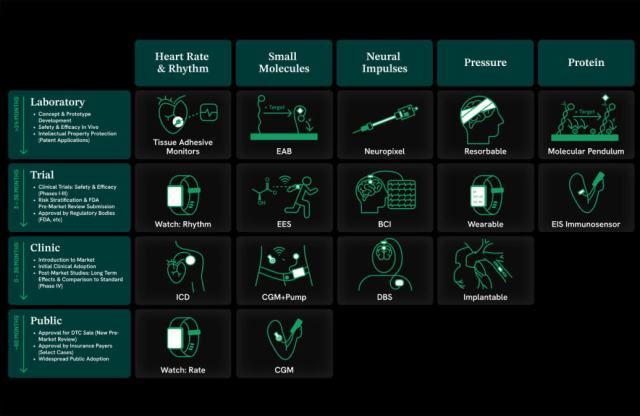Jan 18, 2017 · 6 min read
Update from Chan Zuckerberg Science

Cori Bargmann: Since the announcement of Chan Zuckerberg Science in September, we’ve been planning, thinking and developing our programs. This update is to let you know where we are, and what you can expect from us over the coming months.
Technology is a no-brainer: develop a great tool and it raises everyone’s game. Twenty years ago it was the genome sequence that made everyone in biology more effective, with its combination of data production, systems engineering, early-release open data and great search algorithms. Just in the past couple of years the new detectors, cameras and computational algorithms for cryoEM have accelerated structural biology dramatically. We want to back the next generation of these advances wherever we can see them.
Collaboration means recognizing that the problems in biomedical science are hard, and solving them requires different kinds of expertise – clinical, experimental, computational and engineering expertise. By bringing together the best from all of these fields, and finding new ways for them to work together, we can create an environment that nurtures discovery and innovation.
To develop these ideas, we’ve been consulting with scientific leaders in different fields to see how we can best learn from them. We’re starting by inviting them to share their insights with us in small workshops and meetings. Leadership isn’t defined by age or experience, so we’re reaching out to established experts and the next generation of innovators. We want them to tell us what is holding their field back and how it could move forward faster, and we want to listen and learn from them, and from you. We’ve also been talking to funding agencies like the National Institutes of Health (NIH) and the Wellcome Trust to see where we can align projects, leverage resources and avoid duplication. There are a lot of smart, motivated, idealistic people out there with much more experience than we have! Thanks to everyone for the guidance and encouragement.
Getting to specifics, our first investment is the Chan Zuckerberg Biohub (czbiohub.org). This is a free-standing research institution founded by Stanford University, UCSF and UC Berkeley (note – we fund the Biohub, but the universities own it). It’s an independent entity governed by the three universities and led by two brilliant and accomplished scientists, UCSF’s Joe DeRisi (infectious disease) and Stanford’s Steve Quake (bioengineering). The Biohub exemplifies all our principles of collaboration, people and technology. It brings scientists and engineers together, starting with the founders. It has terrific people, and is recruiting others already. And, it has a strong technology focus that includes platforms that will be available for all faculty at all three schools. We’re proud to fund them and others are already joining in – Reid Hoffman gave a generous donation to them at the end of last year.
Unlike the Biohub, our other plans are not geographically defined – we will be working with a lot of partner institutions, and we hope you are among them.
We’ve been working with a consortium of enthusiastic scientists worldwide to help plan a Human Cell Atlas Project (https://www.humancellatlas.org/).The idea is to define all of the cell types in the human body, their location, their numbers, their neighbors, and their molecular composition. A big part of this will come from the fast-moving single-cell RNA sequencing field, but there will be other elements like protein composition, metabolomics, in situ sequencing methods and a lot of computational and engineering innovation. We see this project as a direct path toward our goals, because a reference Human Cell Atlas will be a foundation to study every aspect of human biology and disease. With that in mind, we want the reference Human Cell Atlas to be completely open to all users, with data generated and released as soon as possible.
We’re thinking about a number of other challenges to take on, too. The biomedical literature is doubling every nine years. How can we know more about what we already know, and make it easier to chart a path through the literature, reach the primary data, run the code, and read the preprints to learn what’s new and happening? How can we innovate in areas like human stem cell and organoid technology to help build disease models? How can we democratize access to powerful – but high-skill – technologies in stem cells and microscopy and make them available to more people? How can we speed up data analysis, which is the choke point for many experiments these days, bringing in our engineering colleagues and their skills?





